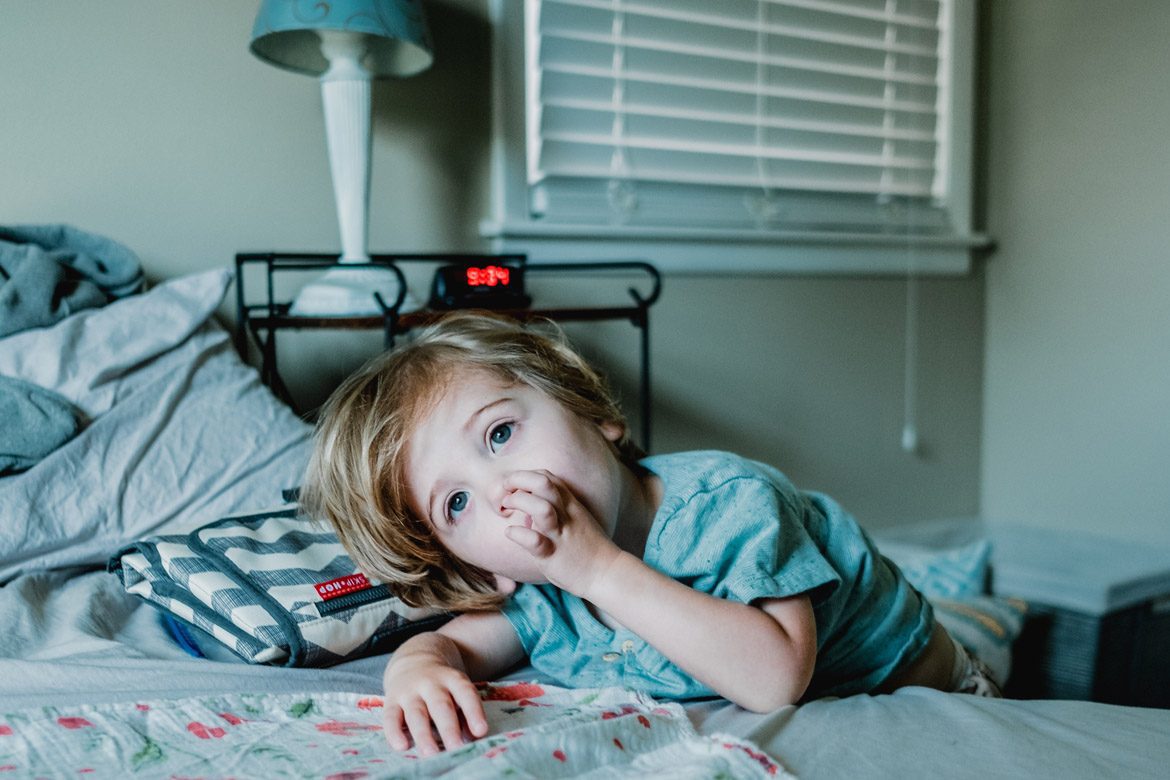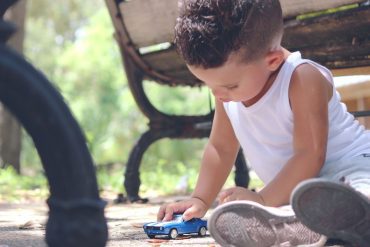By Dr. Deborah MacNamara
At the age of four, my daughter looked at me and said, “Mama, we have a problem – I don’t like to sleep.” Shocked, I managed to stifle my horror and mutter, “Well that’s unfortunate because I do.” In fact, I never appreciated sleep until I had children and got so little of it.
As my daughter and I faced off across the bedtime divide we couldn’t have been at more opposite ends of the spectrum. She wanted to hold onto me and I wanted her to let me go. It was only when I realized we could both get what we wanted that I was able to find my way through. First, I had to surrender to the idea that she was going to be the one to change. I realized it was me that needed to lead us through the sleep impasse but couldn’t do so without first understanding what was going on for her.
What alarms a child most of all is separation from their caretakers. The reason separation is so hard is because attachment is their greatest need. Children weren’t meant to take care of themselves and seek to be strongly tethered to adults who assume responsibility for them. As immature beings, children are highly dependent upon their caretakers to meet their hunger for contact and closeness, safety, and nourishment. When they are apart from us, their alarm system can be highly activated leading to clinging, protest, and crying in distress. The alarm can appear more subtly like needing to go to the bathroom, get a glass of water, more food, or have help in fluffing their pillow up!
As my daughter and I faced off across the bedtime divide we couldn’t have been at more opposite ends of the spectrum. She wanted to hold onto me and I wanted her to let me go. It was only when I realized we could both get what we wanted that I was able to find my way through.
The biggest separation a child faces in the day is bedtime – not school or even when we are at work. We think because we are all in the same house they feel connected but sleep represents a long separation – up to ten hours of unconsciousness where they can feel very far away from us. When you drop them off at preschool or daycare there is at least an adult to greet and take care of them. When they go to bed there is no one waiting saying, “Hello, welcome to your sleepy dream time! I will make sure the monsters don’t bother you tonight.” What children face when we put them to bed is the biggest disconnect of their entire day. It seems like such a cruel irony that when children need us the most, we typically have little energy left. The idea of being generous and giving, things that come so easy on a full parenting gas tank, can reduce us to tears.
When I started to listen to what my daughter’s behaviour was telling me I realized she was scared and lonely. It was actually a compliment to our relationship that she depended on me to keep her safe and wanted to be close. When I asked her why she didn’t like to sleep she told me, “Because the monsters come out of my eyes.” She then pointed to the ceiling and said, “That dream catcher is broken.” She was telling me she needed more from me and to take the lead in helping her rest. I told her that monsters weren’t her problem nor broken dream catchers, I was there to care for her throughout the night. Before you start to panic, I didn’t give up sleep, but I did certainly make it appear to her that I did.











